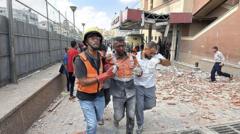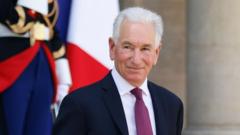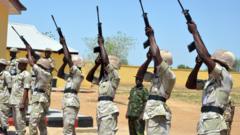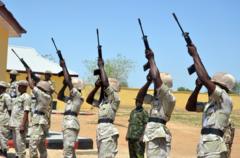In response to a missile attack using cluster munitions from Yemen's Houthis, Israel carried out air strikes on military targets in the capital, Sanaa, highlighting escalating tensions in the region.
Escalating Tensions: Israel Strikes Yemeni Houthis in Response to Cluster Bomb Attack
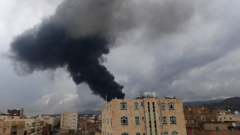
Escalating Tensions: Israel Strikes Yemeni Houthis in Response to Cluster Bomb Attack
Israel retaliates against Houthi missile strike, marking the use of cluster munitions in the ongoing conflict.
Israel has executed air strikes against military sites in Yemen's Sanaa following a missile attack by the Houthi group, which employed cluster munitions. On Friday, the Israeli military reported that the Houthis used such bombs for the first time in the ongoing conflict, resulting in light damage. The targeted locations included a military complex that housed the presidential palace, a fuel depot, and power stations.
Prime Minister Benjamin Netanyahu and Defence Minister Israel Katz led the retaliatory strikes, underscoring that Israel will respond forcefully to any attacks against it. "Anyone who attacks us - we attack them. Anyone planning to attack us - we attack them," Netanyahu stated from the command centre in Tel Aviv, reflecting Israel's commitment to deter further aggression.
Following the Houthi missile strike, which was said to include bomblets that landed in a residential area, investigations have commenced into the failure of Israeli defensive measures to intercept the missile. The Houthis, backed by Iran, have conducted a series of missile attacks against Israel in a bid to show solidarity with the Palestinians amidst escalating violence since the outbreak of war between Israel and Hamas in October 2023. The use of cluster munitions, which are notorious for causing civilian casualties due to their unexploded ordnance, has raised further concerns within the international community, with over 100 countries banning their use.
This incident marks a significant chapter in the protracted conflict in Yemen, where the Houthis have been active since they ousted the recognized government in 2014, leading to a devastating civil war. As tensions simmer and spill over into broader regional conflicts, the situation remains dynamic, with potential ramifications for the Middle East's security landscape.


